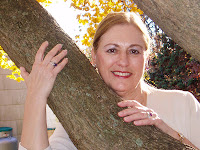You
Don’t Need Anyone’s Permission
By
Kathleen Kaska (Your Fifth Saturday Blogger)
When
people ask you what you do for a living and you answer, “I’m a writer,” how do
those words make you feel: proud, shy, boastful, tentative?
I
feel all of the above in a split second after I give my answer. Even twenty
years after publishing my first article and three years after retiring from
teaching to write full time, I still experience a moment’s hesitation and my
answer sounds something like, “Er . . .
I’m a . . . writer.” I can’t help anticipate that look on the curious
person’s face, that look that says, “Yeah, right. You’re a writer; I’m a
writer; everyone and his dog is a writer. So?” The anticipation of that look,
that answer, often has me stammering.
Then
a few days ago, I read Roy Peter Clark’s article in the Seattle Times, “Change Your Idea of Who’s a Writer.” Clark is a
writing teacher at the Poynter Institute in St. Petersburg, Florida. He has
written several books about writing including Help! For Writers. I have so many How-To writing books on my shelf,
one really has to grab me before I purchase it. After Clark summarized his
book, I added it to my must-read list. Here’s Clark’s take on being a writer. I
hope he forgives me adding my own twist in a three-part nutshell.
1. It’s Not All About Me
Clark
reminded me of an important lesson I learned all those years ago when I decided
to become a writer. Writing is not always a solitary endeavor and in order to
grow and learn, it is important to utilize the “spirit of a writing community.”
I had to learn to think and act like a writer so I joined the local writer’s
league, signed up for classes, and joined critique groups. Writers have to be
willing to accept help when they need it, but assist others who ask. And when
we respect others written expression, that respect comes back to us.
2. It’s All About Me:
Clark
writes that writers do not need permission or approval to be writers. The act
of writing makes us a writer. Writing does not necessarily mean pounding out
words on our laptops. Pondering and contemplating the ideas and emotions we eventually
weave into our stories makes us writers. I get my best ideas when I’m jogging or hiking the forest trails near my house. It’s easier for my
characters to get my attention when I’m letting my mind wonder. This solitary
time also allows me to work through plotting issues, create new characters, and
polish dialogue. So, when I’m by myself on the trail in the woods and having a
conversation with the invisible, I’m writing.
3. It’s All About a Better Me
And
here’s a point I never really considered. Clark writes that the act of writing
makes us better individuals; it makes us more attuned to the world around us
and empathetic to others.
So,
if we write, contemplate writing, ask for help when we need it and give help in
return, and cultivate our craft, we are writers.
I was always taught not to toot my own horn. I now realize if my tooting results in a pleasant melody and not a loud bugle call, it's perfectly fine. I don't usually make New Year's resolutions. I tend to obsess with daily goal-making, so I pass on that annual proclamation to improve myself. But this year, I think I'll make an exception. When asked what I do for a living, I'll look that person in the eye and say, "I'm a writer," and feel proud of my answer.
I write the Sydney Lockhart Mystery Series and the Classic Mystery Triviography Mystery Series.
I write the Sydney Lockhart Mystery Series and the Classic Mystery Triviography Mystery Series.




















.jpg)







.jpg)